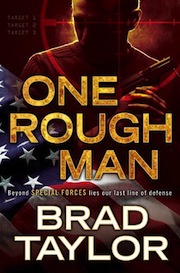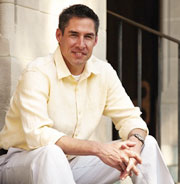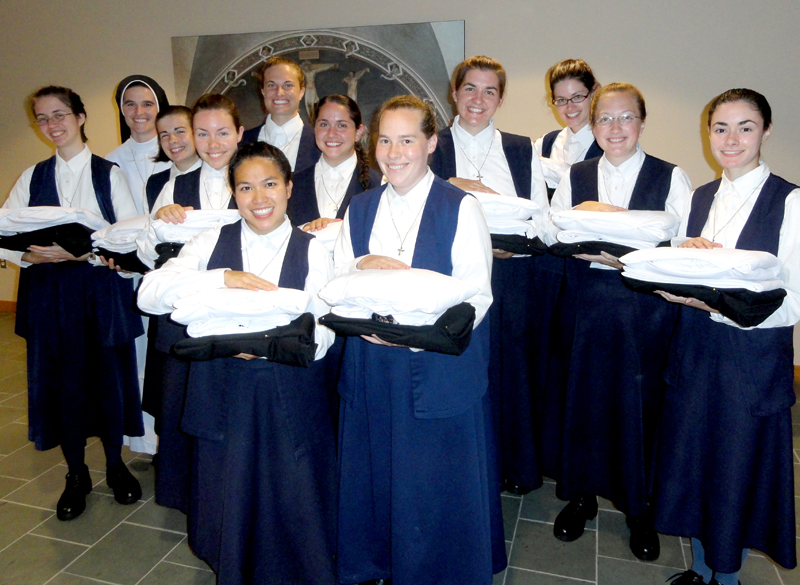Sometimes we think God blesses us because we’re good people. America prospers because God likes us. This is a pretty common sentiment among American Christians. We’re big and rich and powerful, therefore God favors us. And if God favors us, it must be because we’re a godly nation.
Today my Bible reading included Deuteronomy 9-10. The Israelites apparently thought the same about themselves–that God was doing all of these great things for them because of their goodness. But throughout this chapter, Moses repeatedly castigates the Israelites for thinking like that. He mentions over and over God’s fury against the Israelites, and that only fervent appeals by Moses, on many occasions, prevented God from destroying the Israelites.
Look at these words of Moses from Deuteronomy 9:4-6:
4 After the LORD your God has driven them out before you, do not say to yourself, “The LORD has brought me here to take possession of this land because of my righteousness.” No, it is on account of the wickedness of these nations that the LORD is going to drive them out before you. 5 It is not because of your righteousness or your integrity that you are going in to take possession of their land; but on account of the wickedness of these nations, the LORD your God will drive them out before you, to accomplish what he swore to your fathers, to Abraham, Isaac and Jacob. 6 Understand, then, that it is not because of your righteousness that the LORD your God is giving you this good land to possess, for you are a stiff-necked people.
Moses is saying, “You are NOT good people. You infuriate God. But you’re better than the peoples around you.”
I wonder if God has a similar attitude toward America. I’m sure God’s wrath burned against us as we permitted slavery, as we slaughtered and abused Indians, and as we in recent years have descended into so much immorality, ravage the earth to satisfy our cravings, and increasingly thumb our noses at the poor while coddling and protecting the interests of the rich. Would not these things, among others, provoke God’s wrath?
And yet, while being like the Israelites–not people of righteousness or integrity–we’ve been better than the nations who have come against us, at least at that time–Britain, Mexico, Spain, Germany, Japan, Afghanistan, Iraq. It was not our goodness that made the difference, but their greater wickedness.
Yes, we are good…compared to other nations. But remember how Moses, over and over, strongly reminded the Israelites about the many times God was ready to totally wipe them out. Yes, they were his chosen people, and he had made promises to Abraham, Isaac, and Jacob. Yet God was on the verge of chucking the whole thing and just annihilating the stubborn, disobedient Israelites. He came really really close to doing that.
Think about that.
And then ask, “Are we better than the Israelites? Why wouldn’t God be just as disgusted with us, and ready to wipe us out?” Ready to do it except, perhaps, for the prayers of the righteous among us. That’s all that saved Israel.
God’s standards and expectations far exceed anything we can imagine. Let’s not think that God is head-over-heels for us because we’re such a goody-goody nation. We’re not. In God’s standards, we may be just the lesser of many evils.
No, I’m not an America hater. I’m just using Scripture to try to understand how God might view us.




 I mostly read mysteries and domestic thrillers, but sometimes I’m in the mood for an international thriller with a grand plot. You know, writers like Robert Ludlum and Clive Cussler. Books filled with action, with a hero who traipses around the world pursuing or being pursued by bad guys.
I mostly read mysteries and domestic thrillers, but sometimes I’m in the mood for an international thriller with a grand plot. You know, writers like Robert Ludlum and Clive Cussler. Books filled with action, with a hero who traipses around the world pursuing or being pursued by bad guys. Well, that won’t happen again. With this book, Taylor will rocket to the big time. I don’t know how Taylor compares to veteran guys like Vince Flynn and Brad Thor (with whom Taylor is typically compared), but Taylor can hold his own in this genre. He’ll do well, and will keep getting better (especially with a higher-calibre editor). Plus, with 21 years in the military, apparently much of it in Special Forces and Delta conducting classified operations, he knows the terrain.
Well, that won’t happen again. With this book, Taylor will rocket to the big time. I don’t know how Taylor compares to veteran guys like Vince Flynn and Brad Thor (with whom Taylor is typically compared), but Taylor can hold his own in this genre. He’ll do well, and will keep getting better (especially with a higher-calibre editor). Plus, with 21 years in the military, apparently much of it in Special Forces and Delta conducting classified operations, he knows the terrain.



 I don’t know how many recipes the Bible contains, but Exodus 30 gives one for sacred anointing oil.
I don’t know how many recipes the Bible contains, but Exodus 30 gives one for sacred anointing oil.


